Ruth Downie - Tabula Rasa
Здесь есть возможность читать онлайн «Ruth Downie - Tabula Rasa» весь текст электронной книги совершенно бесплатно (целиком полную версию без сокращений). В некоторых случаях можно слушать аудио, скачать через торрент в формате fb2 и присутствует краткое содержание. Год выпуска: 2014, ISBN: 2014, Издательство: Bloomsbury USA, Жанр: Исторический детектив, на английском языке. Описание произведения, (предисловие) а так же отзывы посетителей доступны на портале библиотеки ЛибКат.
- Название:Tabula Rasa
- Автор:
- Издательство:Bloomsbury USA
- Жанр:
- Год:2014
- ISBN:9781620403235
- Рейтинг книги:5 / 5. Голосов: 1
-
Избранное:Добавить в избранное
- Отзывы:
-
Ваша оценка:
- 100
- 1
- 2
- 3
- 4
- 5
Tabula Rasa: краткое содержание, описание и аннотация
Предлагаем к чтению аннотацию, описание, краткое содержание или предисловие (зависит от того, что написал сам автор книги «Tabula Rasa»). Если вы не нашли необходимую информацию о книге — напишите в комментариях, мы постараемся отыскать её.
Tabula Rasa — читать онлайн бесплатно полную книгу (весь текст) целиком
Ниже представлен текст книги, разбитый по страницам. Система сохранения места последней прочитанной страницы, позволяет с удобством читать онлайн бесплатно книгу «Tabula Rasa», без необходимости каждый раз заново искать на чём Вы остановились. Поставьте закладку, и сможете в любой момент перейти на страницу, на которой закончили чтение.
Интервал:
Закладка:
“That’s him there,” the man said when Ruso asked for Olennius. They both watched for a moment as a fresh bucket of mortar was delivered. Olennius slapped a trowel-load onto his board, chopped it, formed a sausage, rolled it, and flicked it off the trowel into the space where the next stone would fit. It was like watching a cook at work.
A disgruntled patient who was the son of a stonemason had once told Ruso that the wall was a hasty, messy effort where speed was valued over quality. According to him, an ape could do the straight parts. Skilled men like himself, in constant demand for constructing corners and gateways and arches, were rarely given time to do what he called “a proper job.”
Ruso watched as Olennius bedded in a roughly squared stone, tapped it with the end of his trowel, squinted at the line, tapped it again, and reached out for the next chop of mortar. He made it look easy. Perhaps an ape could do it, but it certainly wouldn’t want to. Not up here.
The centurion cupped his hands around his mouth and yelled, “Olennius!” into the wind.
The man turned. “Boss?”
“Medic to see you!”
Olennius put the trowel down and gave a quick salute before slapping his gloved hands together to try and warm them. The trowel caught the wind, tumbled off the stonework, and landed at his feet.
“I’m trying to track down the property of a man called Candidus!” shouted Ruso. It was the sort of weather that made every conversation sound like an argument. “Also known as Perky!”
Olennius nodded with the enthusiasm of a man who did not want to be flogged for stealing. “I’m glad you’ve come, sir! I was going to hand it in tonight!” He removed a glove and reached into a little pouch that hung from his belt. After some fumbling he retrieved a folding knife about the size of Ruso’s index finger. The uneven letters cand were burned into the wooden hilt.
Ruso gripped the blunt side of the blade and pulled it out. It was well oiled and the edge was rough against the tip of his finger. “Where was it?”
The man pointed west to where wooden scaffolding was being erected. “Over there, sir!”
“Show me!”
The man set off with confidence across the flattened grass, but as they approached the scaffold he began to falter, glancing down to his left at a clump of bushes shuddering in the breeze. “It was around here somewhere, sir,” he said, pausing in the shelter of the wall to rub his head with a gloved knuckle and turn slowly in a half circle. “I can’t say exactly. But about this far out.” He measured out five paces away from the stonework. “Lying in the grass.”
“Open or shut?”
“Shut, sir. It was a bit stiff and damp, but I got it dried out and oiled it and it was fine.” Just in case Ruso should be in any doubt, he said, “I asked around but nobody knew who ‘Cand’ was, so I’ve been looking after it.”
“How long for?”
“Just since yesterday afternoon, sir.”
“Next time,” grunted his centurion, “hand it in and let me find the owner.”
Ruso reached down and slid the knife into the top of his boot lining. “Thanks. I’ll give it back to him when I find him.”
Olennius said, “Sir, has this missing man got anything to do with . . .” Ruso followed his glance toward the wall.
“No,” said Ruso and the centurion together.
“He’s given himself a holiday.” Ruso explained, repeating the line about Candidus’s uncle being a friend. “I’m trying to get him back before his uncle turns up.” It was the truth, but it sounded like an excuse. Olennius was sent back to work. Ruso gazed down at the track that ran alongside the stream, both of them following the course of a boggy natural dip that passed through the line of the wall. To the south, the stream flowed under the road, skirted Senecio’s farm, and went down past the quarry. He pointed north. “What’s up there?”
“Camp nine,” said the centurion. “After that, just native farms. HQ might have a scout who can tell you more.”
Candidus’s knife had been found at least a hundred paces away from the track. The lad had not struck him as someone who relished unnecessary fresh air and exercise, and it seemed unlikely that a man absent without leave would break away to scramble up a hill, lose his knife, and come back down again to continue his journey. He-or someone else-could possibly have thrown the knife up here, although it was hard to imagine why. Perhaps someone else had borrowed or stolen it and dropped it. Perhaps Candidus had lost it himself while he was up here earlier for some reason that had nothing to do with his disappearance. Perhaps . . .
Perhaps there were even more obscure possibilities, but eventually Ruso would have to face the thought that Candidus might have been near the wall when he vanished.
His gaze drifted to the scaffolding. The uprights now lashed in place gave some sense of the full height to which the stonework would rise. From where he was standing, anything to the north would soon be invisible. You could not see through a wall. You could not see into it, either.
Leaving the centurion with “Let me know if you hear anything of him, will you?” he made his way swiftly back to where Olennius was slapping down another bed of mortar.
“Sir?”
“The truth,” Ruso said. “When did you find it?”
Olennius held on to the trowel this time. “I told people I’d got it, sir. I wasn’t stealing.”
“I know that. Your centurion may not need to hear the exact truth, but I do.”
The man counted on his gloved fingers with the point of the trowel. “About four days ago, sir.”
Ignoring the hard stare of the usurped centurion, Ruso headed back down to the road. When he was halfway there he stopped and turned. The teams were back at work, mortaring heavy stones into two parallel faces. The wide unfilled hollow between them reminded him of nothing so much as a vast, elongated stone tomb.
Chapter 20
Tilla cupped her hands and blew on them to warm them before calling again. Finally a man appeared from behind the house and told her that her patient, the young woman with the week-old baby, was not at home.
“But I have walked here. She knew I would be here today.”
The man shrugged. “She must have forgotten.”
On the way back, Tilla barely noticed the ivy in bloom, nor the rose hips, nor the puddle until she stepped in it. By the time she was back at Ria’s bar, the cold had spread beyond the leaks in her boots, and her damp socks were beginning to rub blisters on her toes.
“Nobody came for you, mistress!” Virana called as Tilla hurried past on the way to the loft in search of fresh footwear.
Wearing dry socks and her indoor shoes-she had indoor and outdoor shoes now: such luxury!-she returned to the bar carrying a scroll and her box of medicines. Then, keeping her shawl on, she sat by the entrance, nursing a warm cup of honeyed milk. She opened the scroll and began to run her forefinger along the letters, mouthing them softly to herself, putting the unfamiliar sequences together until they shaped themselves into words.
“These are necessary observances for the healthy person to take during pestilence.”
The best advice was to go abroad. Failing that, it was wise to be carried in a litter. After that there was a long list of instructions that included avoiding fatigue and not getting up early in the morning.
It was ridiculous. What normal person could do more than dream of any of those things? It was very difficult to learn anything from a book when she was constantly wanting to argue with its author.
She looked up hopefully as each customer came into the bar, but only two patients wanted to share her table for a quiet chat. One was a soldier’s girl worried about her baby’s cough, and the other a slave of a passing jeweler whose injured hand needed a fresh dressing. Neither was really a job for a medicus. Anyone with any common sense could have dealt with them.
Читать дальшеИнтервал:
Закладка:
Похожие книги на «Tabula Rasa»
Представляем Вашему вниманию похожие книги на «Tabula Rasa» списком для выбора. Мы отобрали схожую по названию и смыслу литературу в надежде предоставить читателям больше вариантов отыскать новые, интересные, ещё непрочитанные произведения.
Обсуждение, отзывы о книге «Tabula Rasa» и просто собственные мнения читателей. Оставьте ваши комментарии, напишите, что Вы думаете о произведении, его смысле или главных героях. Укажите что конкретно понравилось, а что нет, и почему Вы так считаете.
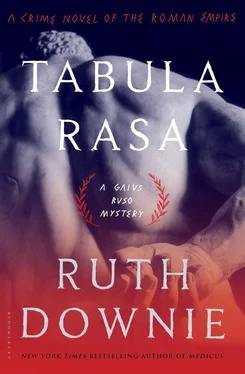


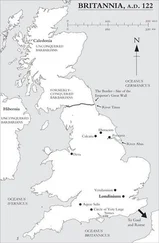
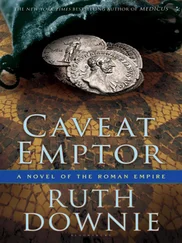
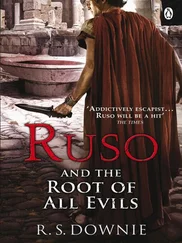
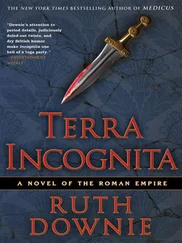
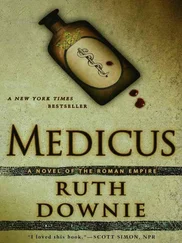
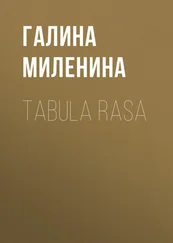
![Антон Архангельский - Tabula Rasa - Исходная точка [калибрятина]](/books/392380/anton-arhangelskij-tabula-rasa-ishodnaya-tochka-k-thumb.webp)


